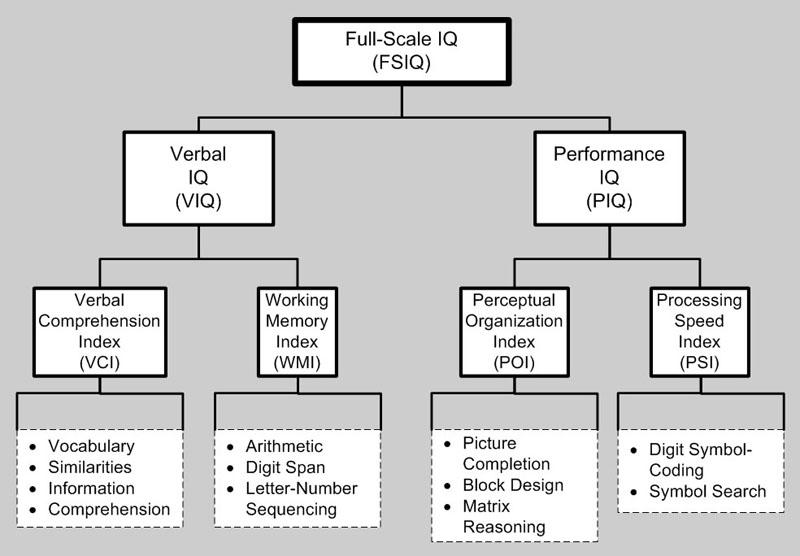Intelligence Testing
- Mental age is a concept related to intelligence. It looks at how a specific child, at a specific age--usually today, now--performs intellectually, compared to average intellectual performance for that physical age, measured in years.
- The current scoring method for all IQ tests is the deviation IQ. In this method, an IQ score of 100 means that the test-taker's performance on the test is at the median level of performance. An IQ score of 115 means performance one standard deviation above the median.
- The Wechsler Adult Intelligence Scale (WAIS) is a test designed to measure intelligence in adults and older adolescents.
- The Stanford-Binet Intelligence Scale is a cognitive ability and intelligence test that is used to diagnose developmental or intellectual deficiencies in young children. The test measures knowledge, quantitative reasoning, visual-spatial processing, working memory, and fluid reasoning.
- The Culture Fair Intelligence Test (CFIT) is an attempt to produce a measure of cognitive abilities that accurately estimated intelligence devoid of sociocultural and environmental influences.
- Eugenics is a set of beliefs and practices which aims at improving the genetic quality of the human population. Some of these practices are considered by many to be a violation of basic human rights, which include the right to reproduction.
- Cumulative deficit is an hypothesis concerning the cause of lower mental test scores of groups considered environmentally deprived, which seeks to quantify the adverse effects of economic and social deprivation on IQ.
- The Flynn effect is the substantial and long-sustained increase in both fluid and crystallized intelligence test scores measured in many parts of the world from roughly 1930 to the present day.
- Test bias is a form of systematic (i.e., non-random) error which leads to examinees from one demographic group having an unwarranted advantage over examinees from another demographic group.
